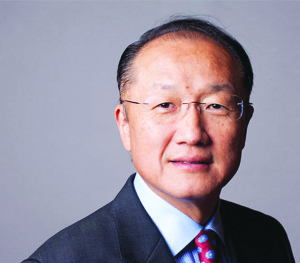Report links WBG to Asia’s coal power funding saga
 The World Bank Group has been accused of indirectly financing a boom in coal-fired power in Asia despite its avowed commitments to cut funding towards the sector.
The World Bank Group has been accused of indirectly financing a boom in coal-fired power in Asia despite its avowed commitments to cut funding towards the sector.
A new report published by Inclusive Development International (IDI), a rights advocacy group chronicled how coal power plants which cause detrimental air pollution and contribute to deforestation, are spreading from Bangladesh to the Philippines with funding provided by financial intermediaries supported by the World Bank.
The report released on Monday, days to the kick-off of 2016 Annual Meetings of the IMF/World Bank Group revealed that about 41 coal projects have received funding from banks and investment funds supported by the World Bank’s private-sector arm, the International Finance Corporation (IFC) since it made the pledge in 2013.
The Bank said at that time that it would end virtually all support for the creation of coal-burning power plants, supporting them only in “rare circumstances” where there are no viable alternatives. The IDI report, however, identified 56,127 megawatts of new coal capacity funded indirectly by the IFC, which included the planned 1,360-megawatt Rampal power station in Bangladesh, cited on the edge of the Sundarbans mangrove forest, which is home to endangered species and supports the livelihoods of two million people.
According to the report, although, the Bank declined to support the controversial project, which could threaten the Sundarbans with air and water pollution, six local banks, all IFC-financed, agreed to support the project, despite protests from environmentalists.
“While the IFC has tried to distance itself from the projects funded by its intermediaries, the fact is that these banks are brazenly disregarding the IFC’s environmental and social requirements,” David Pred, IDI’s managing director said.
The report also cited power construction in the Philippines, where coal burning is estimated to result in almost a thousand premature deaths annually and where more than 30 environmental activists were killed in 2015 alone. IFC-financed banks have supported at least 20 new coal projects since 2013 in the Philippines, it adds.
IFC’s spokesman, Frederick Jones, who admitted that the institution took the report seriously, however insisted that its long-term investment strategy was geared towards creating “stronger markets for clean energy and create incentives for countries and the private sector not to invest in coal, but rather in renewable energy”.
Jones further disclosed that the IFC had invested more than $15bn in renewable energy, energy efficiency and other areas since 2005, and had mobilised $10bn more.
He also conceded that IFC policy did not prohibit equity clients from funding coal plants, meaning the institution might be indirectly exposed to the industry.
World Bank President Jim Yong Kim earlier this year warned against the dangers of new coal power projects, saying “if Asia implements the coal-based plans right now, I think we are finished”.
By Olisemeka Obeche
